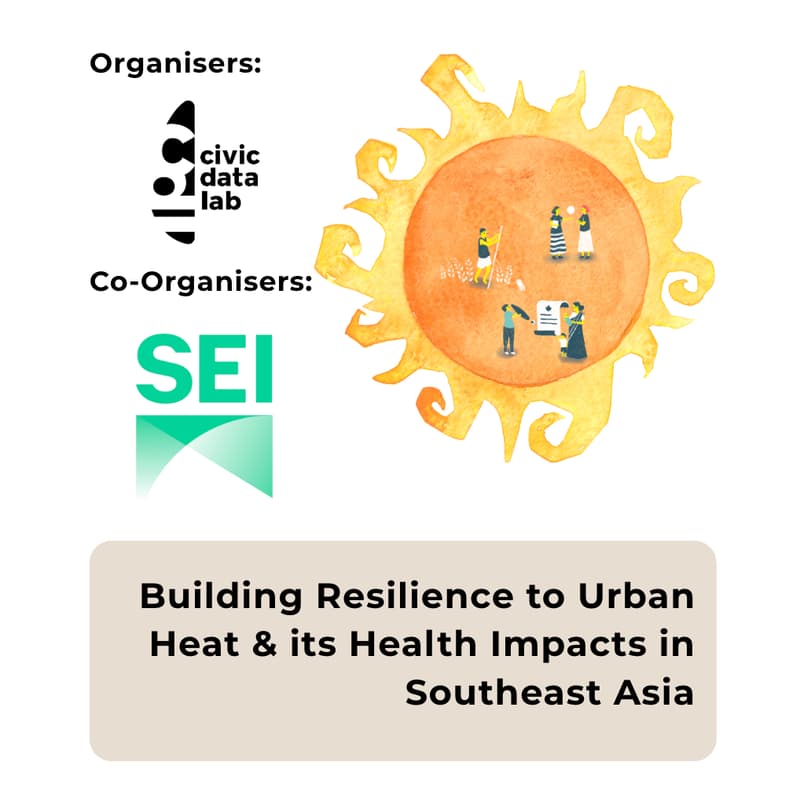

Building Resilience to Urban Heat & its Health Impacts in Southeast Asia
Hosts: Organiser: CivicDataLab Pvt. Ltd., India Potential Collaborators: Stockholm Environment Institute
Language: English with Thai materials and translation available
The session will commence with a moderated panel discussion featuring experts, open to all registered participants. Subsequently, a hands-on, participatory workshop will be conducted, drawing upon the insights from the preceding panel discussion. The session will conclude with a reflective segment where participants will articulate best practices for initiating collaborative engagement with climate data ecosystems to address heat-induced health concerns and build long term urban heat resilience.
Session Description: The session will explore climate data ecosystems in Southeast Asia, focusing on diverse use-cases such as disaster risk reduction, extreme heat action plans, framework for urban heat resilience/management, climate-health data systems (including real-time surveillance tools and long-term planning frameworks), climate data applications in public health, climate services for health, green public finance management, sustainable public procurement, and natural resource management. We will also analyse challenges and opportunities concerning data governance, standardisation, sharing, and AI-readiness.
Furthermore, the workshop will examine how stakeholders, particularly citizen groups, engage with climate data ecosystems and provide timely feedback. The participatory workshop will concentrate on three primary themes: climate-health data standards and interoperability, urban heat action planning, and social vulnerability indices ⇄ extreme heat health outcomes. This session aims to facilitate participants' understanding of core principles and best practices for initiating and engaging with climate data ecosystems (focussing on extreme heat) within their respective regions. Furthermore, it seeks to build understanding on health implications of urban heat, available solutions for urban heat management, and effective strategies to build urban heat resilience for human health. It will assist in identifying novel datasets and nascent techniques, such as artificial intelligence, to bolster collaborative climate action efforts in managing extreme heat risks. The ensuing discussion will empower participants to prioritise the proactive development of climate data ecosystems, thereby addressing urban heat related health challenges and building long term resilience in their target geographies.
Session Structure:
Welcome Note by CivicDataLab (5 mins) Keynote Address by a senior representative from the session collaborator (5 mins)
Panel Discussion with Experts (60 mins)
Introduction and Context Setting by the Moderator from CivicDataLab Panelists Insights (5 panelists)
Each panelist will provide their initial remarks, sharing perspectives and insights based on their experience and relevant work on the subject.
Moderated Discussion with Panelists and Q&A Panelists Insights The moderator will prompt further discussion based on the panelists' remarks, diving deeper into specific challenges, opportunities, and actionable solutions.
Q&A and inputs from audience Networking with Tea/Coffee (15 mins)
Participatory Workshop (90 mins)
Introduction to the session, exercise and group work
Group Exercise on three broad themes (forming working groups) Shareback, Reflections and Summing-up Closing Remarks and Vote of Thanks (5 mins)